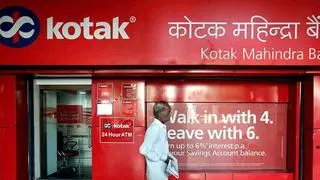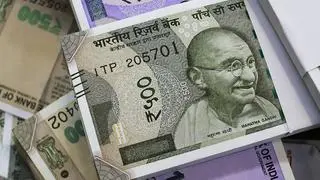The Reserve Bank of India (RBI) has penalised 22 banks, including the country’s largest bank State Bank of India for violation of its instructions, among other things, on Know Your Customer (KYC)/Anti Money Laundering (AML) norms.
Monetary penalty
Among public sector lenders, State Bank of India, Bank of Baroda, Bank of India, Canara Bank, Central Bank of India, and Indian Overseas Bank have been imposed a monetary penalty of Rs 3 crore each, while Punjab Nation Bank, Andhra Bank and United Bank of India are charged with Rs 2.5 crore each.
Among private sector banks, RBI has penalised Federal Bank (Rs 3 crore), YES Bank (Rs 2 crore), Kotak Mahindra Bank Ltd (Rs 1.5 crore) and ING Vysya Bank (Rs 1.5 crore).
Earlier, the central bank had penalised Axis Bank (Rs 5 crore), HDFC Bank (Rs 4.5 crore) and ICICI Bank (Rs 1 crore) in June.
Seven other banks - Barclays Bank, BNP Paribas, Citibank, Royal Bank of Scotland, Standard Chartered, State Bank of Patiala and Bank of Tokyo Mitsubishi UFJ - faced similar scrutiny and the banks’ written or oral explanation were found to be satisfactory or no violation of serious nature has been established.
It has, therefore, been decided not to impose any monetary penalty but to issue only suitable cautionary letters, RBI said.
A similar scrutiny was also conducted in seven other banks during April and May 2013. The process of follow-up action in respect of those banks is at different stages of its completion.
RBI scrutiny
The Reserve Bank of India had carried out a scrutiny of books of accounts, internal control, compliance systems and processes of these banks at their offices during April.
The scrutiny revealed violations such as non-adherence to certain aspects of KYC norms and AML guidelines like customer identification procedure, risk categorisation, periodical review of risk profiling of account holders and periodical KYC updation.
Non-adherence of norms
It also referred to non-adherence of KYC norms for walk-in customers including for the sale of third party products, omission in filing of cash transaction reports in respect of some cash transactions and sale of gold coins for cash beyond Rs 50,000 among others.
The central bank said the investigation did not reveal any prima facie evidence of money laundering. However, any conclusive inference in this regard can be drawn only by an end-to-end investigation of the transactions by tax and enforcement agencies.








Comments
Comments have to be in English, and in full sentences. They cannot be abusive or personal. Please abide by our community guidelines for posting your comments.
We have migrated to a new commenting platform. If you are already a registered user of TheHindu Businessline and logged in, you may continue to engage with our articles. If you do not have an account please register and login to post comments. Users can access their older comments by logging into their accounts on Vuukle.